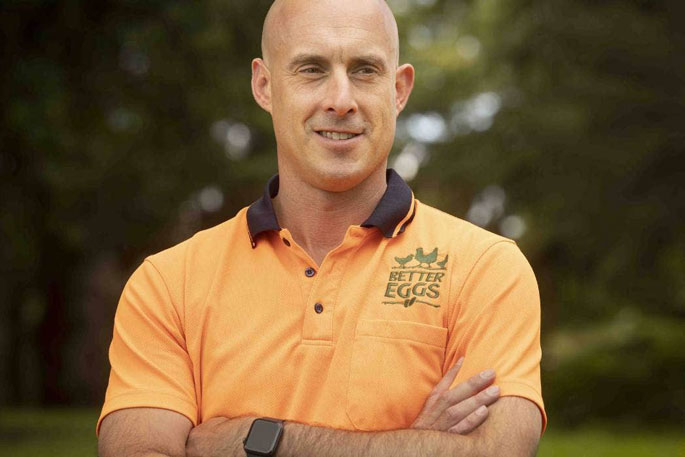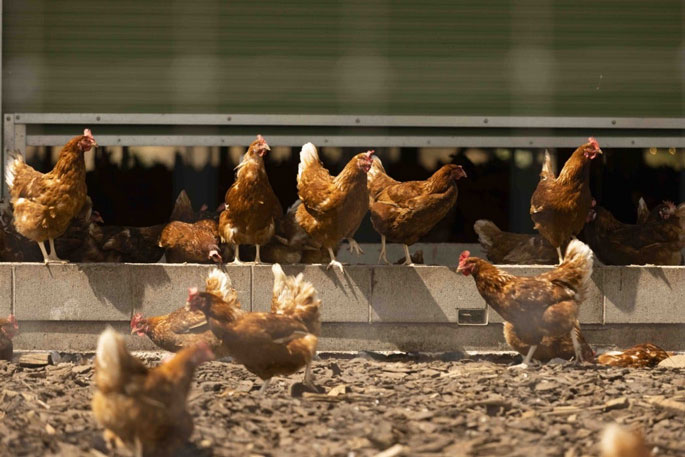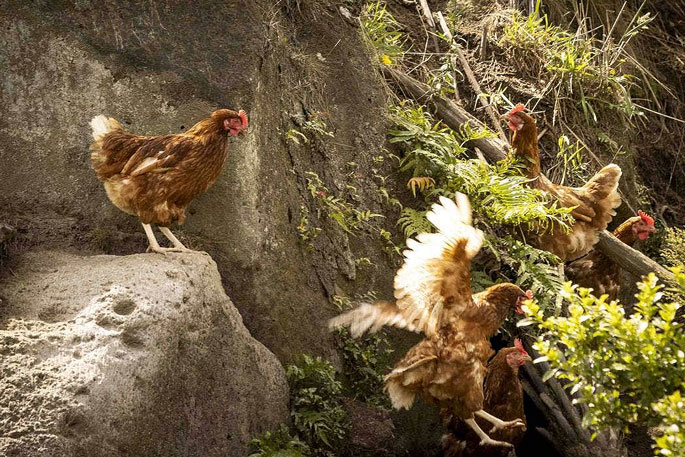Near-empty supermarket shelves will be full of eggs in a matter of months, according to one of the country's biggest producers.
The shortage, which has seen New Zealanders turn to buying their own hens, could even become a surplus, says Better Eggs chief executive Gareth van der Heyden.
His company, which supplies 23 per cent of the national retail market, is set to boost egg production by 20 per cent this year.
That includes 20,000 hens it is adding next week to its free-range forest site outside Tokoroa.
'The last three years, the economics have been very, very challenging,” says van der Heyden.
'So [there have been] record low prices, but also record high costs through Covid.”
Grain prices driven up by the invasion of Ukraine compounded the challenges.
 Gareth van der Heyden expects the retail egg shortage to be over in months.
Gareth van der Heyden expects the retail egg shortage to be over in months.
Imports are banned because of the threat of avian diseases, meaning New Zealand can't trade its way out of the shortage.
But the shortage will be over in several months, says van der Heyden.
'[The] price of eggs needs to go up for farmers to make money to reinvest. And that's what's happening.
'Prices are going up and then we will therefore reinvest. Before we know it, we'll be in another surplus.”
Better Eggs has farms across the North Island producing about four and a half million eggs a week.
Its Tokoroa farm, on 140ha of rolling former forestry land, currently has a flock of 80,000 with consent for 320,000.
A planting programme will see the birds eventually able to roam through oaks, poplars, pine and native trees, echoing the habitat of their wild ancestor, the Southeast Asian jungle fowl.
Van der Heyden, who says consumers are increasingly concerned with sustainability and the environment, is unaware of any similar operation of that scale anywhere in the world.
He says overseas trends all point towards becoming cage-free.
'Whether it's in egg production or plant based proteins, the global trends are very, very clear.”
 Chickens have ready access in and out of their shed.
Chickens have ready access in and out of their shed.
Better Eggs is phasing out its colony cage operations in the next eight years, as supermarkets lead the charge by phasing them out by 2027.
Colony cages, as the name suggests, provide more space for hens than the traditional battery cages, which were phased out altogether last year, but less than barn or free-range.
Meanwhile, the rush to buy backyard chickens has cleaned out one Hamilton heritage breeder, as New Zealander seek to shield themselves from rising prices and shortages at the shelves.
Hamilton Heritage Hen owner Owen Pratt says when he returned from the Christmas break, it was to unprecedented demand for both heritage and Hy-Line breeds.
He's fielding up to 50 inquiries daily, five or six times the usual. That means he's sold out, and anyone wanting a heritage chicken now will have to wait till the end of the year, while those wanting a Hy-Line will wait till June.
Pratt has already been fielding increased interest since Covid, with concerns over price and availability.
'I think people are realising that we can't always rely on the supply of food being there. And people are sort of getting into it, whether it's the chickens or whether it's being self-sufficient with meat, veges and that sort of thing, it's just really ramped up.”



1 comment
So Simple
Posted on 20-02-2023 16:28 | By Jules L
Gee, who would have thought that the answer was so simple, if we just charge people an extortionate amount for something, and give them no alternative, then they will be forced to pay more, at a time that people are struggling with a cost of living crisis. So simple, just restrict supply and blackmail people into paying more, why didn't they think of that before? And I suppose we won't even mention the major health problems that come from free-range chickens that have no antibiotic protection from avian diseases that can be passed on to humans, like cage and colony hens do.
Leave a Comment
You must be logged in to make a comment.